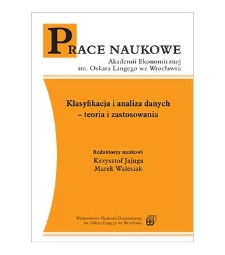Dolnośląska Biblioteka Cyfrowa udostępnia 109 805 obiektów cyfrowych
Obiekt
Tytuł: Instytucja kościoła: wspólnota wartości czy grupa interesu?
Tytuł odmienny:
The institution of church: a community of values or a group of interest?
Autor:
Opis:
Prace Naukowe Akademii Ekonomicznej we Wrocławiu; 2005; nr 1090, s. 96-108
Abstrakt:
Wydawca:
Wydawnictwo Akademii Ekonomicznej im. Oskara Langego we Wrocławiu
Miejsce wydania:
Data wydania:
Typ zasobu:
Identyfikator zasobu:
Język:
Powiązania:
Prace Naukowe Akademii Ekonomicznej im. Oskara Langego we Wrocławiu; 2005; nr 1090 ; Działania zbiorowe w teorii i praktyce
Prawa:
Wszystkie prawa zastrzeżone (Copyright)
Prawa dostępu:
Dla wszystkich w zakresie dozwolonego użytku
Lokalizacja oryginału:
Uniwersytet Ekonomiczny we Wrocławiu
Źródło finansowania:
Tytuł publikacji grupowej:
Prace Naukowe Akademii Ekonomicznej im. Oskara Langego we Wrocławiu
Kolekcje, do których przypisany jest obiekt:
- Dolnośląska Biblioteka Cyfrowa > Zasoby > 2. Czasopisma > Czasopisma współczesne
- Dolnośląska Biblioteka Cyfrowa > Dziedziny nauki > 5. Nauki społeczne
- Dolnośląska Biblioteka Cyfrowa > Uczestnicy Konsorcjum > 04. Uniwersytet Ekonomiczny we Wrocławiu > Czasopisma wydawane przez Wydawnictwo UEW > Prace Naukowe Akademii Ekonomicznej we Wrocławiu
Data ostatniej modyfikacji:
6 gru 2025
Data dodania obiektu:
5 sty 2025
Liczba wyświetleń treści obiektu:
124
Wszystkie dostępne wersje tego obiektu:
https://dbc.wroc.pl/publication/168229
Wyświetl opis w formacie RDF:
Wyświetl opis w formacie OAI-PMH:
| Nazwa wydania | Data |
|---|---|
| Instytucja kościoła: wspólnota wartości czy grupa interesu? | 6 gru 2025 |

























